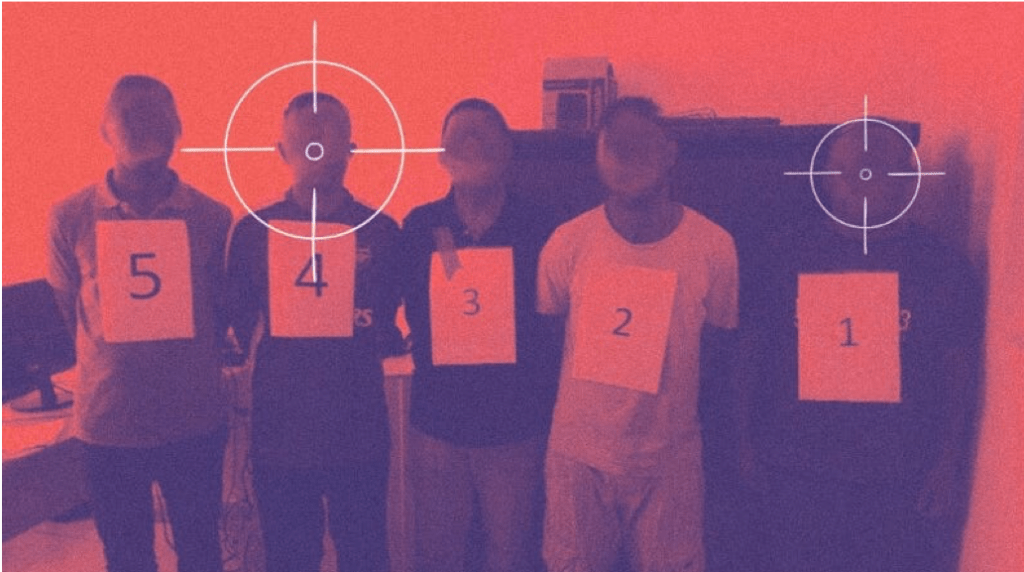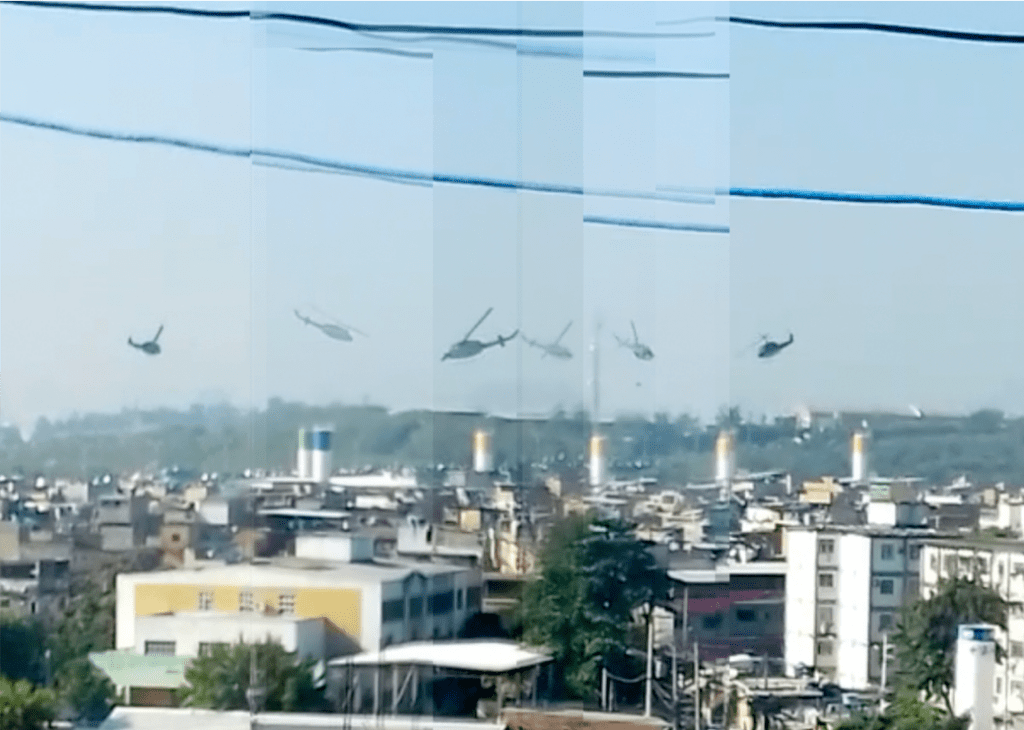Rodrigo José Firmino
Pontifícia Universidade Católica do Paraná, Brasil rodrigo.firmino@pucpr.br
Fernanda Glória Bruno
Universidade Federal do Rio de Janeiro, Brasil bruno.fernanda@gmail.com
Introduction
Surveillance studies has established itself in a broad field of research in the past two decades, mainly from a network of researchers, institutions, and publications, guided by a growing interest in building approaches to address surveillance and control in a post-9/11 world. Surveillance & Society is a central actor in this process, and many of us have benefited from this unique and unprecedented source of references in surveillance studies.
Several themes and perspectives have been proposed, and as the field gained critical body and diversity in the constitution of a network of studies, it became evident that it is not possible to speak of a surveillance society but of surveillance societies. The global phenomenon of the extraction, collection, storage, and analysis of data and information about individuals and population groups presents different arrangements according to regional and historical circumstances.
It has become inescapable to question the conditions of constitution for sociotechnical surveillance arrangements in different contexts, and with that we have seen an increase in interest in studies dedicated to the understanding of the specificities of the social and historical construction of surveillance in Latin American countries from ontologies and epistemologies that are closest to their realities. This has happened both from the point of view of understanding the processes of use of surveillance by governments and companies in the neoliberal management of bodies and territories, as well as in the organization of resistance to more or less explicit violence operated by technologies of control.

Given this context, the need to build a regional agenda for studies on surveillance, technology, and society is evident. Over the past thirteen years, the construction of this more situated agenda has addressed a number of questions. What is the point of building a research network on surveillance, technology, and society in Latin America? How are global processes linked to surveillance and securitization inscribed in local and singular contexts? To what extent does the problematization of these processes in Latin America coincide with the questions proposed by the so-called Global North? How does Latin American colonial history resonate with current surveillance dispositives? How do the asymmetries and intersectionalities of race, gender, and class affect sociotechnical arrangements locally and regionally? What meanings do “watching” and “being watched” assume in the asymmetric contexts of Latin America?
From this need for a conscious and situated attention, in dialogue with Latin American singularities, two other questions are inseparable from the process of understanding the sociotechnical arrangements of surveillance and control in the region. On one hand, and based on the idea of technodiversity, how does the appropriation and resignification of technologies that are produced in a global context take place, and what are the tensions in the contexts in which these technologies are inserted? On the other hand, how are resistance movements to contemporary processes of extractivism established in a situated way and in relation to historical and intersectional processes of struggle against forms of discrimination, socio-environmental injustices, and colonial domination?
With these concerns in mind, LAVITS (The Latin American Network of Surveillance, Technology and Society Studies) was founded in 2009, and since then has been largely organized by Brazilians with important contributions from Argentina, Mexico, Chile, Colombia, and Costa Rica. One of the network’s most significant challenges is precisely to foster integration between the countries of Latin America with limited financial support, respecting their different histories but valuing deep similarities in the regional technopolitical context. In addition to research and actions at different periods, LAVITS has organized six international symposiums since its foundation, with different agendas and host cities. 2

The network’s main objective is to be a means for interchange between Latin American researchers, activists, and artists interested in the connections between surveillance, technology, and society. It is important to emphasize that the network’s wider scope extends beyond the issue of surveillance and directs research and social-action concerns towards broader relationships between digital technologies, technopolitics, and the singularities of Latin American societies. The network involves researchers from different fields (including communication, sociology, anthropology, psychology, computer science, law, architecture, and urban studies) and for more than a decade has generated a diverse range of activities, publications, research, reports, and civic action arising out of discussions between research and activism groups in Latin America and in cooperation with countries in Europe and North America, particularly with colleagues from the Surveillance Studies Network.
Since its foundation, one important aspect of LAVITS activity has been the qualification of researchers (at various academic levels) in topics of interest to the network and activities in the region, together with engagement with groups and laboratories associated with LAVITS and other non-governmental partners 3 . A fertile and interdisciplinary field of research and social action can safely be said to have been established in Brazil and Latin America concerning the intersections between surveillance, technology, and society, to which LAVITS has made a decisive contribution.
Towards a Decolonial Agenda
The relationship between technology, surveillance, and colonialism is not just historical but also recursive. Far from being a thing of the past and an innovation of modernity, colonialism is re-inscribed in different ways into the technological solutions and surveillance and security mechanisms that are today part of the neoliberal agenda of governments and corporations in many parts of the world. In Brazil and Latin America particularly, the colonial condition of being a testbed for the extraction of resources, the trial and diffusion of technologies without due legal, economic, social, technopolitical, and environmental protections, etc., is being constructed by actors operating in the widest range of sectors today: entertainment, services, health, education, work, urban mobility, sanitation, security, etc.
This colonial recursiveness also applies to processes of violence, discrimination, exploitation, and expropriation that operate particularly among vulnerable populations and territories, especially black and indigenous communities and women. At the same time, the history and multiple re-inscriptions of colonialism in Brazil and Latin America is full of frictions, confrontations, resistance, and insurgencies.
Therefore, to understand and engage with rearranged relationships between technology, surveillance, and colonialism in Brazilian and Latin American contexts implies consideration of the dynamics that involve both expropriation and appropriation, both exploitation and insurgency, even if under asymmetrical conditions.
As the network has matured in recent years, LAVITS has contributed to the construction of a decolonial agenda for research, education, and social action concerning the impact of extractive operations of surveillance and control technologies on rights, fundamental freedoms, and ways of life in the region. We have also been discussing the limits of the modern and liberal notion of “subjects with rights” in face of the conflicts being produced by technological mediation, shifting and expanding boundaries of extractivism, and requirements to consider “new subjects with rights, rights of diffuse ownership, related rights, [and] rights of nature,” to quote some of the examples appearing in the legal context (Parra 2022). This agenda therefore also aims to foster technopolitical practices and knowledge that operate as resistance to extractivist rationales. By extractivist, we mean broadly the technologies and practices developed by large corporations and states, focused on the extraction of data, value, and knowledge about individuals, territories, and populations on different levels: behavioral, cognitive, psychic, emotional, biometric, health, labor, social, and environmental (Mezzadra 2020; Gago 2019; Mbembe 2018; Quijano 2007; Santos and Meneses 2009).

This agenda also involves appreciation of the power of discriminated against, stigmatized, and subaltern populations (Roy 2011; Mendoza 2018; Santos 1987; Spivak 1988; McFarlane 2019), particularly through building modes of resistance and survival that offer subversive and counter-oppressive appropriation of digital technologies, data, and narratives in the urban peripheries of Latin America. This means rethinking processes that normally value the informalities of the elite while criminalizing informalities of the subaltern on different scales—from the global, between countries of the “North” and the “South,” to the local, between the “centers” and “peripheries” of Latin American cities. Our geographical focus has therefore increasingly prioritized territories stigmatized by “absences”—where the hegemonic narrative involves a supposed absence of civility, infrastructure, quality of life, decent living conditions, etc.—and by the deliberate erasure of “potentials and presences”—where the most visible presences are generally crime, violence, and confrontations with the police.
This agenda is in turn connected to the search for experiments, practices, and ways of life that enhance technodiversity, not only through questioning the universal nature of technology but also through affirmation and construction of a “new technological imagination that allows new forms of social, political and aesthetic life and new relationships with non-humans, the earth and the cosmos” (Hui 2020: 95). Brazil and Latin America are historically fertile not just in biodiversity but also in technodiversity. Native peoples, feminist collectives, Afrofuturists, urban technoactivists, and a series of local and everyday sociotechnical practices have been establishing dissident and counter-hegemonic use of technologies, together with ways of life mediated by technologies that operate in contraflow to the patriarchal, colonial, and extractivist model of major modern and contemporary technological projects.
As we have mentioned, in recent years, LAVITS has been concerned with constructing this decolonial agenda from a Latin American viewpoint. Since 2015, the network has relied on support from the Ford Foundation, which has enabled formation of two research and action projects titled “Asymmetries and (In)Visibilities of Surveillance in Latin America,” and more recently, “Extractivism, Technopolitics and Decolonial Agendas in the Post-Covid-19 Pandemic Context.” The pandemic context helped to broaden our concerns about the rationales and practices of surveillance capitalism actors and the extractivism of data inherent to digital platforms.
There has also been increased involvement of major technology corporations in the provision of solutions to a series of crises associated with the pandemic. Reapplying a colonial rationale to the strategic superimposition of disaster capitalism with surveillance capitalism, such corporations have been increasingly occupying more space in the “modernisation” of Latin American governmental infrastructures for the management, processing, and analysis of data, not infrequently under the brand of smart cities (plainly in crisis in the Global North, but still popular in Latin America). Meanwhile, these same corporations have become central players in the provision of technological solutions involving artificial intelligence, machine learning, and the automation of decision-making processes in the public sector, with access to important databases on a national scale and the production of knowledge aimed at the formulation of public policies.
The pandemic has also resized the scale of the problems involved in technologies and policies of extracting and processing data, highlighting their connections with socio-environmental problems. It has then become urgent to reposition debate and research into a zone of intersection between technology, culture, and nature, together with interpenetration between digital networks and existential physical territories and the tensions between the supposedly unlimited power of machine data extraction, the limits of natural resources, and the environmental and social costs involved.
Materializing an Agenda
Several projects have developed out of the main points of the agenda described above. These are an interesting way to see how the determinant factors in our move towards a situated approach to surveillance studies materialize in research projects, events, and activism.
One illustrative example of the network’s actions with activities involving negligent and predatory use of data, artificial intelligence, and the automation of social classification involves the growing adoption of facial recognition systems by public services and equipment in public spaces. With 54% of the Brazilian population classified as black—85% of people approached by police in Brazilian cities and two thirds of those incarcerated are black (iddd and data_labe 2022)—the country appears as a fragile territory for the implementation of a form of technology that is admittedly racist and discriminatory (Raji et al. 2020; Buolamwini 2017). One axis of action and agenda concerning this topic has been to connect with activists, social movements, and members of parliament on three levels (municipal, state, and federal) to construct legislation for banning facial recognition technologies. In Brazil, bills have already been initiated or presented in the municipalities of Rio de Janeiro, Recife, and Curitiba, and in the states of Rio de Janeiro and Paraná. LAVITS aims to expand discussions and legislative projects throughout the country with the ambitious goal of including the ban in federal legislation, which overrides all others.
Thus, the project for banning facial recognition provides a good example of the network’s various spheres of action:
- in the academic and scientific arena, based on the production of critical material and studies;
- in education, through master’s and PhD qualifications for research into the topic (together with financial support);
- in activism, through necessary connections with social movements and organizations fighting for rights;
- in legislation, through the fundamental work of legal professionals and politicians in the drafting of bills; and
- in public debate, through public hearings and insertions in the media and social networks.

The research project “Mapping Advances of Surveillance Capitalism on Public Universities in South America” developed within the sphere of “Education Under Surveillance,” is another significant example of a situated intervention into the involvement of major corporations in the provision of public services in the region. This research mapped data from 335 public higher education institutions, revealing how institutional communications in public universities are increasingly dominated by Google and Microsoft. Around 80% of public institutions in the region were found to have agreements with the so-called big techs (Da Cruz, Sarava, and Amiel 2019).
Influencing public debate about security, technology, and rights, the project titled “Territories of Exception: Violation of Rights and the Use of Police Helicopters in Rio de Janeiro,” 4 carried out in partnership with many local organizations, aimed to reveal the human-rights violations caused by the state’s public security policy that escalated police operations via the use of military helicopters as mobile shooting platforms in the overpopulated areas of the city’s favelas and peripheral regions. The report resulting from this investigation, together with other civil actions, influenced the Federal Supreme Court’s ruling to prohibit police operations in the favelas during the pandemic. The report was developed on a digital platform for georeferenced narratives about human, territorial, and environmental rights, and received several awards and commendations in the investigative journalism category from Brazilian and Ibero-American bodies.

Data and digital-technology activism in urban peripheries was the focus of another research project involving LAVITS-affiliated laboratories. Titled “Digital Peripheries and Subaltern Urbanism: Urban Technopolitics and Digital Activism in the Global South,” the project considers creative and political engagements with infrastructure, data, and digital technologies in the city as ways in which vulnerable populations can recover territory as an everyday space and place of emancipation. It aimed mainly at addressing the contribution of emergent digital practices in the urban margins for understanding manifestations of an “urbanism of the South.” The research began through partnerships with digital activists in Rio de Janeiro’s biggest favelas and expanded to study similar movements in Latin America. This is also another relevant case in which research and social advocacy intersect, since peripheral digital actors began to develop their own master’s degree and doctoral research in a LAVITS laboratory (Jararaca: Urban Technopolitics Laboratory/PUCPR) during the study, with financial support from the network.

Another area where an agenda has been built for surveillance studies in Latin America surrounds themes related to digital platforms. As mentioned before, the centrality of extractive practices in colonialism, from mining to slave labor, plays an important role in reproducing the inequalities that mark Latin American societies and that explain the breadth of phenomena such as platform capitalism. The economic crisis, aggravated by the arrival of COVID-19, has been increasing the number of workers on delivery platforms, also increasing competition between them, and thus reducing remuneration for delivery. Simultaneously, these workers also produce data that are extracted by the platforms, as well as allowing data about customers to be produced. The work mediated by platform companies also highlights other forms of extractivism, exposing couriers to the risks of contamination for long working hours as a way of protecting consumers who can pay for the delivery service and can carry out their work remotely. It is not only about the simple extraction and manipulation of data from workers and users-consumers but also the amplification of the transfer of risks of a part of the population (whose comfort can be guaranteed precisely by the intermediation offers of platform capitalism) to another part, already worn out and vulnerable in various aspects of urban life (and whose condition of precariousness is enhanced precisely by the same platform capitalism).

In addition, some of the responses given by the public authorities to the pandemic in different contexts, local and regional, focused on the capture and production of biological data and circulation of individuals through applications to be downloaded on smartphones and built into partnerships with actors from the private sector, with the aim of epidemiological control of the population (Lemos et al. 2022). Faced with the urgency of combating the virus and the pandemic, such initiatives faced very little resistance and questioning, occupying spaces and validating biosurveillance practices that tended to be naturalized. With this, we observe the acceleration of processes that have already been designed in recent years but that have acquired a new legitimacy in the face of the great common and emergency problem posed by the COVID-19 pandemic.
The pandemic also resizes the scale of the problems involved in the technologies and policies of data extraction and processing, highlighting their connections with socio-environmental problems. Since then, it has become urgent to resituate the debate and research in way that emphasizes the intersection between technique, culture, and nature, as well as the interpenetration between digital networks and existential physical territories and the tensions between the supposedly unlimited power of machinical data extraction and the limits of natural resources and the environmental and social costs at stake.
Defining a Technopolitical Position
Among the guiding principles of this agenda for Latin America, it is important to reinforce some of the shared standpoints of the researchers, activists, and artists who are involved with LAVITS and surveillance studies in the region. We consider it fundamental to understand that the consequences of increased use of surveillance practices and technologies tend to deepen socioeconomic inequalities and asymmetries in contemporary society, hindering debates for social justice, environmental justice, and data justice, which is particularly serious in countries of the so-called Global South. From this perspective, the contemporary centrality of information technologies, materialized in surveillance policies as practices of control, requires critical reflection that can question and subvert their epistemological foundations and commonly alleged neutrality.
This standpoint expands the importance of consolidating decolonial and situated perspectives in Latin America for research and social actions concerning technology, surveillance, and society. On one hand, this involves contesting/confronting the re-inscription of colonial and extractive operations on territories, bodies, epistemologies, ecosystems, and ways of life. On the other hand, it is about creating means of strengthening technopolitical arrangements that resume and expand Latin American cosmotechnical diversity and the historical diversity of practices, meanings, and uses of technology in the region.
The democratization of scientific and technological production is thus reinforced by means of a dialogue between knowledge and practices that exist in different communities, cosmovisions, and ways of life, recognizing the technodiversity and creation of other sociotechnical practices and imaginaries. LAVITS is based on the construction of inclusive, anti-capitalist, democratic, and egalitarian collectives and networks capable of resisting and combating racial, sexist, ableist, and anthropocentric forms of oppression. These principles ultimately enable LAVITS to foster interdisciplinary and critical development that values politically committed research and experience, together with the free circulation and appropriation of knowledge.
References
Buolamwini, Joy. 2017. Gender Shades: Intersectional Phenotypic and Demographic Evaluation of Face Datasets and Gender Classifiers. PhD diss., Massachusetts Institute of Technology.
Da Cruz, Leonardo Ribeiro, Filipe De Oliveira Sarava, and Tel Amiel. 2019. Coletando dados sobre o Capitalismo de Vigilância nas instituições públicas do ensino superior do Brasil. Paper presented at the Proceedings of the 6th LAVITS International Symposium, Salvador, Brazil, June 26–28. https://repositorio.unb.br/handle/10482/36912.
Gago, Verónica. 2019. A razão neoliberal: Economias barrocas e pragmática popular. São Paulo, BR: Editora Elefante.
Hui, Yuk. 2020. Tecnodiversidade. São Paulo, BR: Ubu Editora.
Iddd, and data_labe. 2022. Relatório Por que eu? Como o racismo faz com que as pessoas negras sejam o perfil alvo das abordagens policiais. https://iddd.org.br/por-que-eu-como-o-racismo-faz-com-que-as-pessoas-negras-sejam-o-perfil-alvo-das-abordagens-policiais/ [accessed September 13 ,2022].
Lemos, André, Rodrigo Firmino, Daniel Marques, Eurico Matos, and Catarina Lopes. 2022. Smart Pandemic Surveillance? A Neo-Materialist Analysis of the “Monitora Covid-19” Application in Brazil. Surveillance & Society 20 (1): 82–99.
Mbembe, Achille. 2018. Necropolítica. São Paulo, BR: n-1 Edições.
McFarlane, Colin. 2019. Urban Fragments: A Subaltern Studies Imagination. In Subaltern Geographies, edited by Tariq Jazeel and Stephen Legg, 210–230. Athens, GA: Georgia University Press.
Mendoza, Breny. 2018. Can the Subaltern Save Us? Tapuya: Latin American Science, Technology and Society 1 (1): 109–122.
Mezzadra, Sandro. 2020. A Condição pós-colonial: história e política no presente global. São Paulo, BR: Politeia.
Parra, Henrique. 2022. Da tecnopolítica às lutas cosmotécnicas: dissensos ontoepistêmicos face à hegemonia cibernética no Antropoceno. In Engenharias e outras práticas técnicas engajadas, edited by John Kleba, Cristiano Cruz, and Celso Alvear, 339–394. Campina Grande, BR: EDUEPB.
Quijano, Anibal. 2007. Colonialidad del poder y clasificación social. In El giro decolonial: reflexiones para una diversidad epistémica más allá del capitalismo global, edited by Santiago Castro-Gómez and Ramón Grosfoguel. Bogota, CO: siglo del Hombre Editores.
Raji, Inioluwa Deborah, Timnit Gebru, Margareth Mitchell, Joy Buolamwini, Joonseok Lee, and Emily Denton. 2020. Saving Face: Investigating the Ethical Concerns of Facial Recognition Auditing. Paper presented at the Proceedings of the AAAI/ACM
Conference on AI, Ethics, and Society, New York City, New York, Februry 7–9. https://dl.acm.org/doi/proceedings/10.1145/3375627.
Roy, Ananya. 2011. Slumdog Cities: Rethinking Subaltern Urbanism. International Journal of Urban and Regional Research 35 (2): 223–238.
Santos, Milton. 1987. O espaço do cidadão. São Paulo, BR: Nobel.
Santos, Boaventura de Sousa, and Maria Paula Meneses, eds. 2009. Epistemologias do sul. Coimbra, PT: Edições Almedina.
Spivak, Gayatri Chakravorty. 1988. Can the Subaltern Speak? In Marxism and the Interpretation of Culture, edited by Cary Nelson and Lawrence Grossberg, 271–313. Champaign, IL: University of Illinois Press.
_____________________________________________________
1Originally published in: Firmino, Rodrigo Jose, and Fernanda Glória Bruno. 2022. Building a Latin American Agenda for Studies on Surveillance, Technology, and Society. Surveillance & Society 20 (4): 357-363. https://ojs.library.queensu.ca/index.php/surveillance-and-society/index | ISSN: 1477-7487.
2Surveillance, Security and Social Control (Curitiba, 2009); Identification, Identity and Surveillance (Toluca, 2010); Surveillance, Technopolitics and Territories (Rio de Janeiro, 2015); New Paradigms of Surveillance: Latin American Perspectives (Buenos Aires, 2016); Surveillance, Democracy and Privacy: Vulnerabilities and Resistances (Santiago, 2017); Asymmetries, and (in)Visibilities: Surveillance, Gender and Race (Salvador, 2019).
3Hundreds of researchers have qualified during this thirteen-year history, which has also involved the establishment of numerous laboratories, such as MediaLab/UFRJ, Pimentalab/UNIFESP, LabJor/Unicamp, LED/UFRJ, and Jararaca: Urban Technopolitics Laboratory/PUCPR, to mention just a few.
4See https://documental.xyz/intervencao.

